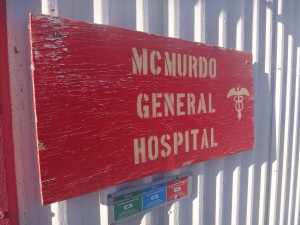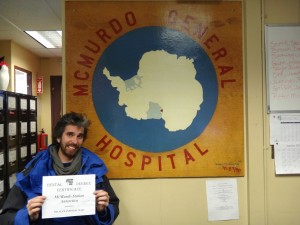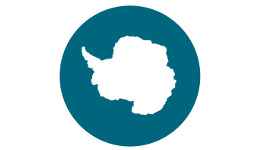Alex writes: I have been here for around three months already and it has been hectic. The original Italian station medical doctor had to return home. I was offered the position as the station’s medical doctor – it was the most difficult decision of my life, but a natural one. I felt extremely well supported – the British Antarctic Survey’s Medical Unit – led by Doctor Anne Hicks and Peter Marquis – offered me full telemedicine support alongside that already in place by the French and Italian Antarctica Medical Units.
I had no dental training, so was grateful for being kindly assisted by the National Science Foundation and the United States Antarctic Program, to travel to the American Station of McMurdo, where I was allowed to join the dentist on site, Dr Kressley Gunn. I learnt important skills in dentistry for one week, before returning to my home station, Concordia ready for the winter isolation.
Over two months after being left in isolation here, I have only just started to settle into a routine. Due to the cold and altitude there is very little oxygen in the air. We live in a permanent state of hypoxia, or lack of oxygen to the brain in layman’s terms. This means we quickly get out of breath quickly and normal everyday tasks can become quite a challenge. We have a gym where I manage to run 2 kilometres in 15 minutes, at a leisurely hypoxic pace. You have to be careful and concentrate on running in a straight line on the treadmill…






Discussion: 5 comments
It must be quite interesting for a medical doctor to become the test subject himself!
The long term exposure to such a state of permanent hypoxia is presumably documented, thanks to previous antarctic missions, but having there someone with your background can surely add another page or two to that knowledge.
The effort to stay focused even on the most mundane tasks must be tremendous.
I hope you’ll all end this mission in good health!
Great story to tell your peers. And, a terrific way to learn some good tips.
Terrifying experiences yet I bet you had learn a lot. For your two months of “isolation” I bet you already get-used to it. Stay motivated and you’ll get to the point where you have to be. Now you’re not just a stationed doctor but a dentists too.
PS. Yes, running in treadmill must be done straightly–or else.
J’ai lu les articles concernant la survie humaine,dans cette base scientifique en antarctique ‘ impressionnant ‘ l’expérience scientifiques divers acquis, permettra une avancé pour de futures installation base lunaire habitable, sur d’autres planètes.
Sachez que j’ai 51 ans, ex Marin-pompier Marine national possédant plusieurs diplômes , ma carrière militaire terminé, comment proposé une demande de stage en tant que volontaire (bénévole) sans rénumération , que ce soit pour plusieurs mois ou années.
Cher Christian,
ESA cherche des medecins diplomées pour Concordia. Une fois par ans (en Juin) ESA demandes les applications. Si vous etes pas medecin vous pouvez essayez directement chez l’institut Polaire Francais: IPEV
https://www.institut-polaire.fr/
Bon chance